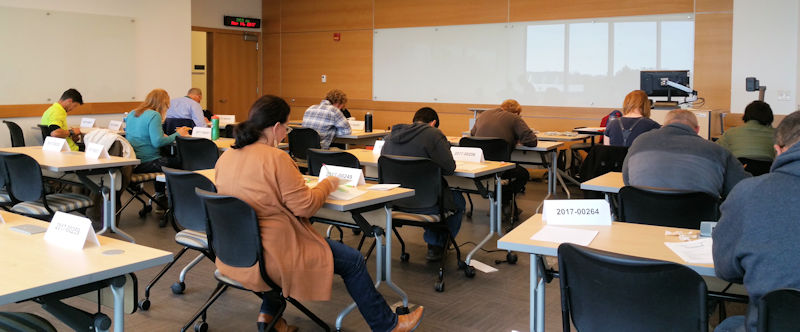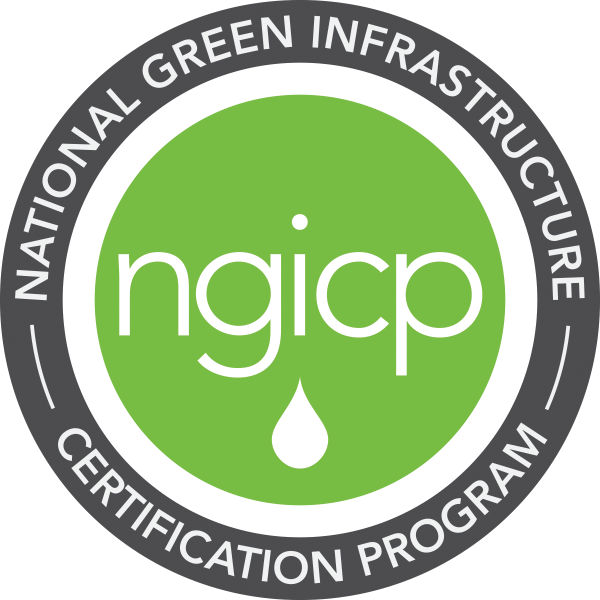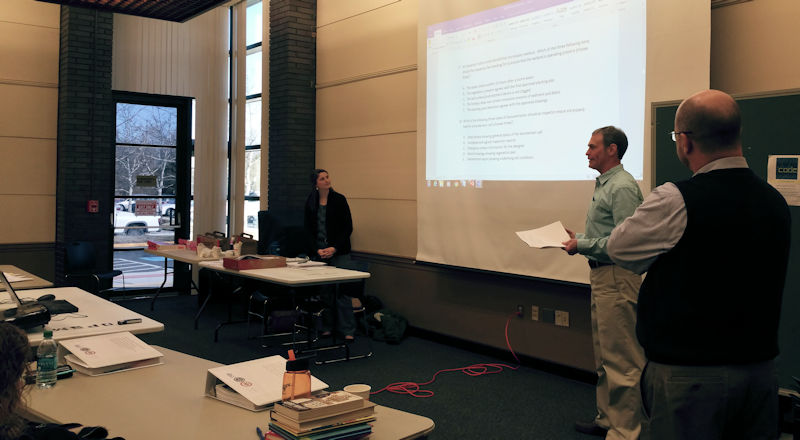
National Green Infrastructure Certification Program (NGICP) trainer licenses allow Water Environment Federation (WEF; Alexandria, Va.) Member Associations (MAs) and other organizations to designate up to five individuals as NGICP trainers. WEF photo/Eddie Gonzalez.
Water professionals who participate in the National Green Infrastructure Certification Program (NGICP) gain the skills needed to design, build, and maintain cutting-edge green stormwater infrastructure.
Since its creation in 2016, more than 350 water professionals have received NGICP certifications. As word spreads about the value of this training, Water Environment Federation (WEF; Alexandria, Va.) Member Associations (MAs) have found ways to get involved in this first-of-its-kind program.
MAs now may purchase training licenses. These licenses allow MAs to prepare their members for work in a crucial and quickly growing segment of the water sector.
Become a training licensee
An increasing number of MAs have members who have received NGICP professional credentials. These newly certified professionals are eager to pass on their new knowledge and skills to their colleagues.
James Moore, stormwater specialist for the Georgia Association of Water Professionals (GAWP), is among 10 individuals in the state who earned NGICP certifications in June. Moore attended an NGICP “Train-the-Trainer” workshop in August, where he learned how to teach the NGICP curriculum to those looking to follow in his footsteps.
Moore says familiarity with green infrastructure will become increasingly important for Georgia stormwater professionals. They anticipate new state regulations that will require on-site reduction or capture of at least 25.4 mm (1 in.) of rain for all regulated municipal separate storm sewer systems by the end of 2020.

WEF and DC Water (Washington, D.C.) established the National Green Infrastructure Certification Program (NGICP) in 2016 to confirm that professionals have the skills and knowledge necessary to work on green stormwater infrastructure.
“GAWP members are keenly interested in getting up to speed on the installation and maintenance of the green infrastructure practices that will accompany the new standard. NGICP offers a … means to do this, along with a robust credentialing process,” Moore said. “We’re looking forward to adding NGICP to our toolbox of professional stormwater trainings.”
Professional organizations that purchase an NGICP training license can designate up to five individuals to serve as official NGICP trainers after completing a “Train-the-Trainer” workshop. Trainers gain access to NGICP materials and best-practice standards for educating hopeful practitioners. These practitioners pay a fee to take the official NGICP exam.
“For those entities that are focusing on educating professionals already in the field, who can afford the ongoing costs of certification, a license is the best option,” said Adriana Caldarelli, NGICP director.
Become an NGICP partner
MAs interested in helping a larger number of members pursue certifications also may become official NGICP partner organizations. After purchasing a 2-year partnership commitment, these MAs can provide a “one-stop-shop” for members to access state-of-the-art green infrastructure training materials, earn their certification, and participate in ongoing professional development opportunities, all without paying out of pocket, Caldarelli said.

Becoming an NGICP partner enables MAs to absorb the costs associated with certification of many members during a 2-year period, which includes holding certification tests such this exam hosted in Virginia. WEF photo/Gonzalez.
Becoming a partner organization also allows the MA to designate new NGICP trainers, to appear prominently in NGICP press releases and marketing materials, and to participate in NGICP Strategic Advisory Group (SAG) activities. By maintaining representation on the NGICP SAG, organizations can help guide the program’s expansion as it works to coordinate an in-demand, skills-driven, sustainable workforce.
MAs that want to help certify several individuals, but do not want to serve as full NGICP partners, also may purchase certification packages that cover as many as 40 people. According to Caldarelli, this spares members from incurring exam application fees, re-test fees, and certification maintenance fees.
Partnership and group-certification packages are suitable for MAs that focus heavily on professional development. They also are valuable for MAs interested in using NGICP as part of larger workforce development programs, Caldarelli said.
For more information, read the NGICP brochure or contact Caldarelli at acaldarelli@wef.org.
— Justin Jacques, WEF Highlights








August 21, 2018
Featured